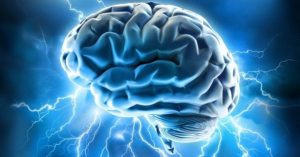Introduction to Heart and Body Health
Maintaining good heart and body health is crucial for overall well-being. While most people are familiar with the concept of heart health, understanding its intricate relationship with overall body health is equally important for holistic wellness.
Understanding Heart Health
Importance of Heart Health
The heart, a muscular organ responsible for pumping blood throughout the body, is at the core of our cardiovascular system. Its significance cannot be overstated, as it ensures that oxygen and essential nutrients reach every cell and tissue, supporting their proper function.
Factors Affecting Heart Health
Numerous factors can influence heart health, ranging from lifestyle choices to genetic predispositions. Diet, physical activity, smoking, stress levels, blood pressure, cholesterol levels, and family history of heart disease all play crucial roles. Understanding these factors empowers individuals to make informed decisions to protect their heart health.
Signs of a Healthy Heart
Recognizing the signs of a healthy heart is essential for early detection of potential issues. A regular heartbeat, normal blood pressure, good circulation, and sufficient energy levels are indicative of a well-functioning heart. These signs serve as valuable indicators of overall cardiovascular health.

Exploring Body Health
The Interconnectedness of Heart and Body
While the heart plays a central role in cardiovascular health, its well-being is closely intertwined with the overall health of the body. Optimal heart function relies on the synergy of various systems, including the respiratory, circulatory, and nervous systems. Any imbalance or dysfunction in these systems can affect heart health and vice versa.
Key Elements of Overall Body Health
Achieving and maintaining optimal body health involves more than just a healthy heart. Nutrition, exercise, mental health, sleep, and hygiene are all integral components. Proper nutrition provides the necessary fuel for bodily functions, while regular exercise strengthens muscles, including the heart. Mental well-being contributes to overall resilience and vitality, and quality sleep is essential for tissue repair and immune function.
Assessing Body Health
Evaluating overall body health requires a comprehensive approach. In addition to assessing cardiovascular health through measures like blood pressure and cholesterol levels, monitoring other vital signs such as body mass index (BMI), blood sugar levels, and mental well-being provides a more holistic picture. Regular health screenings and check-ups help detect any deviations from optimal health early on, allowing for timely intervention.

Lifestyle Choices for Heart and Body Health
Diet and Nutrition
A balanced diet rich in fruits, vegetables, whole grains, lean proteins, and healthy fats is fundamental for heart health and overall well-being. Consuming a variety of nutrient-dense foods ensures that the body receives essential vitamins, minerals, and antioxidants necessary for optimal function.
Exercise and Physical Activity
Regular physical activity is a cornerstone of heart and body health. Engaging in aerobic exercises, strength training, and flexibility exercises not only strengthens the heart and muscles but also improves circulation, reduces inflammation, and enhances mood. Aim for at least 150 minutes of moderate-intensity exercise or 75 minutes of vigorous-intensity exercise per week, as recommended by health authorities.

Stress Management
Chronic stress can have detrimental effects on heart health and overall well-being. Implementing stress management techniques such as meditation, deep breathing exercises, yoga, and mindfulness can help reduce stress levels and promote relaxation. It’s essential to identify sources of stress and develop coping strategies to mitigate their impact on health.
Quality Sleep
Sleep plays a vital role in maintaining optimal health and well-being. Quality sleep is essential for physical and mental recovery, hormone regulation, immune function, and cognitive performance. Establishing a consistent sleep schedule, creating a relaxing bedtime routine, and ensuring a comfortable sleep environment can contribute to better sleep quality.
Monitoring Heart and Body Health
Regular Check-ups and Screenings
Routine medical check-ups and screenings are essential for early detection of potential health issues. During these appointments, healthcare professionals may assess vital signs, perform diagnostic tests, and provide personalized recommendations based on individual health needs. Regular monitoring allows for timely intervention and proactive management of health conditions. Explore More About (Gas Stove Health Impacts)
Self-Monitoring Techniques
Self-monitoring techniques empower individuals to take an active role in managing their health. Keeping track of dietary intake, physical activity levels, sleep patterns, and stress levels can provide valuable insights into overall well-being. Utilizing tools such as fitness trackers, food journals, and stress logs helps individuals identify trends, set goals, and make informed lifestyle choices.
| Aspect | Traditional Diet | Mediterranean Diet |
|---|---|---|
| Diet Composition | Typically high in processed foods, red meat, and saturated fats. Low intake of fruits, vegetables, and whole grains. | Emphasizes fruits, vegetables, whole grains, legumes, nuts, seeds, and olive oil. Limited intake of red meat and processed foods. |
| Heart Health Impact | Associated with increased risk of obesity, heart disease, diabetes, and other chronic illnesses. Elevated cholesterol levels and blood pressure are common. | Linked to reduced risk of heart disease, lower cholesterol levels, improved blood sugar control, and better overall cardiovascular health. High in antioxidants and anti-inflammatory compounds. |
| Nutrient Content | Often lacks essential nutrients such as fiber, vitamins, and minerals. High in sodium and unhealthy fats. | Rich in fiber, vitamins, minerals, and healthy fats. Provides antioxidants and phytochemicals that support heart health and reduce inflammation. |
| Weight Management | Tends to promote weight gain and obesity due to high calorie and fat content. | Supports weight loss and weight management due to emphasis on whole, nutrient-dense foods. Lower calorie density and higher satiety. |
| Longevity Benefits | Associated with higher rates of chronic diseases and shorter life expectancy. | Linked to increased longevity and reduced risk of age-related diseases. Common in regions with lower rates of heart disease and longer life spans. |
| Cultural Influence | Common in Western societies with fast-food culture and processed food availability. | Traditional diet of Mediterranean countries such as Greece, Italy, and Spain. Reflects cultural heritage and culinary traditions. |
| Overall Health Impact | Negatively impacts overall health due to lack of nutritional value and high calorie density. Increases risk of chronic diseases and premature death. | Promotes overall health and well-being by providing essential nutrients, reducing inflammation, and supporting cardiovascular function. Associated with improved quality of life and longevity. |
Conclusion
Prioritizing heart and body health is essential for leading a vibrant and fulfilling life. By understanding the interconnectedness of heart health and overall body health, making conscious lifestyle choices, and regularly monitoring key health indicators, individuals can optimize their well-being and longevity.











